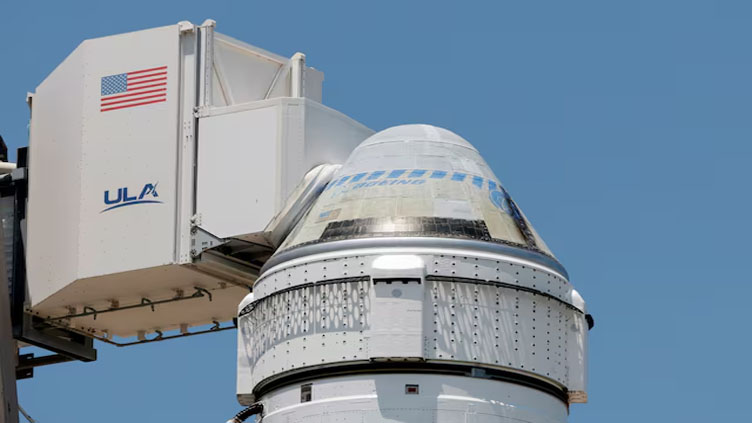Boeing's Starliner problems delay next NASA astronaut mission

Technology
Boeing's Starliner spacecraft in June launched its first two astronauts to the ISS
WASHINGTON (Reuters) - NASA said on Tuesday it pushed a routine SpaceX launch of astronauts to the International Space Station back a month to spend more time analyzing issues with Boeing's Starliner spacecraft, which remains docked at the station.
SpaceX's Crew Dragon spacecraft was initially scheduled to launch four astronauts to the ISS on Aug. 18, but NASA said that mission, named Crew-9, is now planned for "no earlier than" Sept. 24.
"This adjustment allows more time for mission managers to finalize return planning for the agency's Boeing Crew Flight Test currently docked to the orbiting laboratory," the agency said.
Boeing's Starliner spacecraft in June launched its first two astronauts to the ISS as a high-stakes test mission required before NASA can certify the spacecraft for routine astronaut flights, a milestone that SpaceX's similar Crew Dragon.
But Starliner's test mission, initially expected to last about eight days, has been drawn out far longer by an array of problems with the craft's propulsion system that Boeing and NASA have been scrambling to fix.
Those problems have called into question Starliner's ability to safely return to Earth its crew, veteran NASA astronauts Butch Wilmore and Suni Williams. NASA has been examining whether a Crew Dragon capsule will have to bring them home instead.
"No decisions have been made regarding Starliner's return," NASA's statement added.
The mission delays have cost Boeing $125 million, securities filings show, bringing the company's total loss on the program to $1.6 billion since 2016 as the aerospace giant struggles to build a spacecraft that can compete with SpaceX's more experienced and less expensive Crew Dragon.


